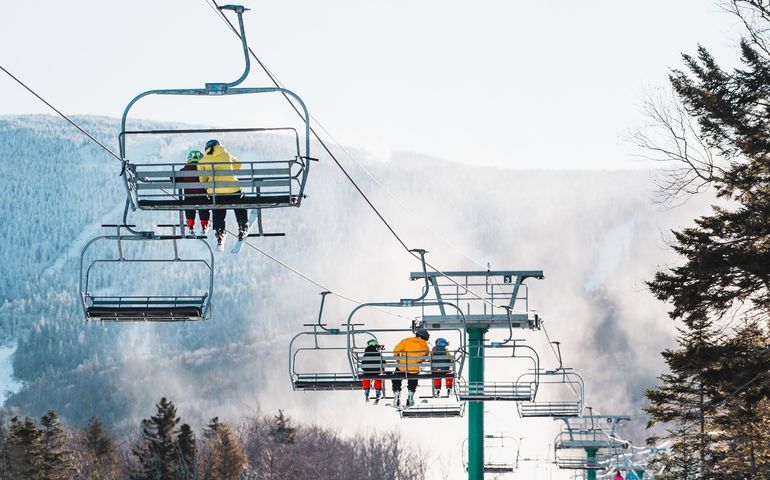Processing Your Payment
Please do not leave this page until complete. This can take a few moments.
- News
-
Editions
-
- Lists
-
Viewpoints
-
Our Events
-
Event Info
- Women's Leadership Forum 2025
- On the Road with Mainebiz in Bethel
- Health Care Forum 2025
- On The Road with Mainebiz in Greenville
- On The Road with Mainebiz in Waterville
- Small Business Forum 2025
- Outstanding Women in Business Reception 2025
- On The Road with Mainebiz in Bath
- 60 Ideas in 60 Minutes Portland 2025
- 40 Under 40 Awards Reception 2025
- On The Road with Mainebiz in Lewiston / Auburn
- 60 Ideas in 60 Minutes Bangor 2025
Award Honorees
- 2025 Business Leaders of the Year
- 2024 Women to Watch Honorees
- 2024 Business Leaders of the Year
- 2023 NextUp: 40 Under 40 Honorees
- 2023 Women to Watch Honorees
- 2023 Business Leaders of the Year
- 2022 NextUp: 40 Under 40 Honorees
- 2022 Women to Watch Honorees
- 2022 Business Leaders of the Year
-
-
Calendar
-
Biz Marketplace
- News
- Editions
- Lists
- Viewpoints
-
Our Events
Event Info
- View all Events
- Women's Leadership Forum 2025
- On the Road with Mainebiz in Bethel
- Health Care Forum 2025
- On The Road with Mainebiz in Greenville
- On The Road with Mainebiz in Waterville
- + More
Award Honorees
- 2025 Business Leaders of the Year
- 2024 Women to Watch Honorees
- 2024 Business Leaders of the Year
- 2023 NextUp: 40 Under 40 Honorees
- 2023 Women to Watch Honorees
- 2023 Business Leaders of the Year
- + More
- 2022 NextUp: 40 Under 40 Honorees
- 2022 Women to Watch Honorees
- 2022 Business Leaders of the Year
- Nomination Forms
- Calendar
- Biz Marketplace
King urges feds to expedite temporary visas for ski, winter tourism workers
 Photo / Courtesy, Saddleback Mountain
Saddleback Mountain, shown here, last winter couldn't find enough employees to keep up with business at the Rangeley ski resort.
Photo / Courtesy, Saddleback Mountain
Saddleback Mountain, shown here, last winter couldn't find enough employees to keep up with business at the Rangeley ski resort.
As many Maine businesses prepare for the approaching winter ski and tourism season, U.S. Sen. Angus King, I-Maine, joined a bipartisan Senate group to call on the Biden administration to expedite approval for 65,000 H-2B work visas.
The push comes at a time when Maine ski resorts are grappling with more people on the slopes but fewer people on the payroll, leading to curtailed hours, later check-ins at resorts and workers adept at multitasking.
The Maine ski and winter tourism season typically runs from late fall through early spring.
Hospitality Maine said it supported the push.
In a letter to Department of Homeland Security Secretary Alejandro Mayorkas and Secretary of Labor Marty Walsh, the senators highlighted the urgent need for workers across the nation’s ski and winter tourism industry and stress that failure to quickly provide H-2Bs will cause adversely affect Maine skiing communities.
Over the last few years, the seasonal tourism industry has struggled to hire enough U.S. workers to meet demand. The H2-B work visa program allows U.S. employers to fill open roles with foreign nationals in temporary nonagricultural jobs when the local workforce is not applying for them.
“H-2B workers are especially vital to the ski and winter tourism industry nationwide, which is anticipating severe workforce shortages ahead of hiring for its busiest season,” the letter said.
According to the National Ski Areas Association, 81% of all ski areas in the U.S. had unfilled winter jobs in the 2021-22 ski season. Ski areas say they were short an average of 76 employees last winter — an increase from an average of 55 unfilled positions in 2020-21.
“In addition to ski and winter tourism businesses themselves, the rural mountain communities who host them depend heavily on winter tourism and recreation visitors for their overall economic health and growth,” the letter added.
Because start dates for ski area employees typically occur in early December, the statutory H-2B cap has been met too early for the industry to effectively utilize the program every year since 2018, the letter said.
“Given the lengthy timelines involved in securing H-2B visa slots and hiring and onboarding recipients, each day that passes without action contributes to the risk of those challenges repeating themselves,” it said.
The two federal agencies recently announced there would be 65,000 supplemental H-2B visas for fiscal year 2023 to help small businesses hire workers, but the visas haven’t yet been released.
The supplemental visas are on top of the 66,000 H-2B visas that are normally available each fiscal year.












0 Comments